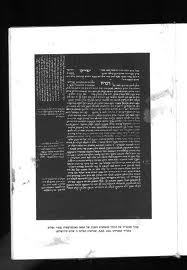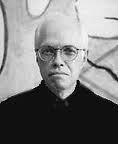Zackary Sholem Berger's Blog, page 33
May 23, 2012
Death, Duty, Def Leppard: Three Poets and an Essayist at Normal’s in Baltimorh
The poetry reading at the bookstore was called for 7:30, but when I got there people were still milling around. To occupy myself, I bought a slim paperback of Kant for 5 dollars. He talked a lot about the duty of morals and the human will, but it seemed a grim duty with very little love and a lot of law. At 8:10, someone murmured, “Maybe we should get started.”
First, Karen Rivers Hattrup read an essay, a sweet memento-mori about the transience and beauty she found as a guest at a Catholic girls’ high school dance: “the girl who had cancer and lived, the girl who had cystic fibrosis and did not.”
Jennifer Fortin, who grew up in Gaithersburg and went to Goucher, read work from her 2011 book Miner Muzzle Velocity. This is a collection of postcard-shaped poems written from a narrator, somewhere abroad, to her lover-friend-recipient, addressed only as “Dear.” Each is signed “Yrs.” and each, like a postcard, wends its way in a confined space while referring to the world outside in either oblique or explicit ways. The writer is always on the road, scribbling on the fly while connecting to her correspondent. “On the road again, Dear. Decide on stakes.”
Then came Nate Pritts, who dedicated some of his work to Def Leppard. So is Nate’s work stadium rock poetry, wearing its heart on its sleeve and demanding to be sung? Sure:
Sure:
Give thanks for what’s beautiful and the fact that it ends
I’m hot with the duty to build it again
That’s the duty we need, that’s what Kant is missing! This is the poet-philosopher: “The assumption we can define the way our surroundings continue/after our absence/is the ultimate arrogance.”
The evening’s host, Jeremy Hoevenaar, read last. A recent chapbook of his is available for free on the website of H_NGM_N, Pritts’s journal. There’s witticism – “You’re not in time. You’re too late. You missed it./ God’s not only dead, he’s completely decomposed.” There is Lucretianism: “Following a series of repeatedly failing gestures,/I hit upon the idea of addressing atoms individually.” In many of these poems, there is also love, disintegration, and anatomy.
To take some of Hoevenaar’s words out of context – the reading was both “a historical moment and an object of entertained fascination.” Let’s build it all again.
May 21, 2012
Heard in the office this month
A selection of quotes.
Doctor, can you give me a refill, or say I don’t have to take the medicine, or something?
I didn’t get my [home] medications in the hospital. That’s ironic.
I don’t know why I smoke.
Don’t worry, you’re still my primary care doctor.
Is your Pentecost coming up?
May 18, 2012
Chasidic writers who haven’t left yet
There are those [Chasidic writers] … who have not fled their communities. They hew to ideals they do not support because they are not yet ready to leave, or because they never will. Such a life can be exquisitely painful, but the writing that comes out of it can also be enlightening—or at the very least, can reveal a different view of the world within the Hasidic walls. Over the past few years, I have met some of the writers who are creating literature from within. I’ve come to believe that their personal struggles help us—and them—to see their surroundings in a new light.
More in Tablet.
May 17, 2012
Sefirah-haikus: Yesod
Blessed the crea-
tor of women, and all of
their complications.
Glass of ice water:
two substances, one face – here
complete each other.
Sustenance: derived
from the old. But the new is
something one must feed.
Who is happiest?
The occasion’s celebrants?
Or the caterers?
She laughs like a bell.
Saint or sinner? As long as
I have milk for her.
Collapsing in bed
and there I find a partner
full of sleep power.
I daven as if
I have control over words.
They know otherwise.
May 14, 2012
Theory and reality: on returning from conferences
We are losing the battle for the public’s health, said Karen DeSalvo, the health commissioner for New Orleans, in one of the plenary addresses at the 35th Annual Meeting of the Society of General Internal Medicine, which just finished up in Orlando. I found her speech electrifying; the audience gave her a standing ovation.
On the day afterwards, the Secretary for Health and Human Services of the State of Massachusetts, JudyAnn Bigby, gave a speech about the realities of health care reform in her state: how payment reform and care restructuring go together. She got a standing ovation too, but the audience was informed rather than dazzled.
This is the difference between inspiring words and the grind of policy, the gap that everyone feels on coming back from a conference. The difference between your internal vow only to give the highest quality care – and the realization, on reading a specialist’s note, that a medication was prescribed to your patient without much indication. You’re going to have to wrestle with yourself. Are you going to speak up about it? Are you going to jeopardize your collegial relationship? What if the patient is convinced that the specialist did it for all the right reasons?
May 8, 2012
Sefirah haikus: Hod
Beauty and its reverberations
For the ugly ones
modesty is a mercy.
Don’t cover your glory.
Blessed the creator
Better to slapdash
And finally make a mess
Than to leave empty.
Hearing every shame:
Who are the guilty ones here?
I say: All of them!
Mistakes
I make a mistake -
and the mistake, homey, fresh,
stands up and makes me.

Don’t get sour, but
Shimon bar Yochai didn’t
Author the Zohar.
Big heat, 2
A glass of water
Dotted over with droplets
I gaze with longing
Toward Shuves
See the mountain now:
A mountain like all mountains, but
No clouds on the top.
May 7, 2012
Communication and ethics: it’s complicated
You can’t fully understand what someone else needs as a human being, and all the more so as a patient, without recognizing two things: their essential commonality with you – you are both human beings – and their uniqueness. Each person has particular wishes. Thus, only through a relationship based on trust, in which each party feels safe enough to divulge those wishes, and a relationship based on open communication, in which those wishes are actually stated, can ethical practice, medical or otherwise, be achieved.
Thus, only through a relationship based on trust, in which each party feels safe enough to divulge those wishes, and a relationship based on open communication, in which those wishes are actually stated, can ethical practice, medical or otherwise, be achieved.
The relationship, however, is reciprocal. Ethics is not reducible to communication, nor vice versa. Some have even suggested that relationship difficulties in the doctor-patient relationship are best dealt with through expanded use of the specialty bioethics consult service. I argue against this notion in a recent article, which you can read here. Communication is something which every provider should work towards achieving, and though bioethics has much to offer medicine, a specialty consult can do more harm than good to the patient-doctor relationship – especially one beset by difficulties.
May 2, 2012
“Respecting” “preferences”
I have read several articles in leading journals – most recently in the Annals of Internal Medicine about tailoring mammography recommendations to patient risk – which come to the same conclusion: no matter what physicians’ recommendations are, we must respect patient preferences. There are various difficulties with this:
1. Patients, in fact anyone, are often hard-pressed to state just what their preferences are. There are a number of reasons for this: the fact that information is often not adequately conveyed; the tyranny of choice from the overabundance of medical information; and, at bottom, the truth that some situations are not ones we are prepared to state preferences about. “Would you rather die in a nursing home or in a hospital?” is, for those not yet in such a situation, equivalent to asking, “Would you rather perish by Dalek or Vader?”
2. We don’t actually respect patients’ preferences, much of the time. We try to make them do things which they would not ordinarily do. Which leads us to…
3. Preferences change. Many change their desires and even their approach to life over time. When we “respect a preference,” whose preference, at what stage of life, are we respecting, and how much respect are we really supposed to show?
April 30, 2012
Sefirah haikus: netzach
The Brotherhood of Man
Tearing each others’ hair
and stealing each others’ toys:
One Father whips them.
Even in the Next World
The mirror’s looking
for its basis. A kind of door,
Also a window.
Each and Every Sabbath
One person’s soul
burns like Shabbos candles. Others’:
Smell of cholent, mulch.
Nel Mezzo Del Cammin
Half way along now
lost on the Sefirah path.
I don’t see angels.
Buy It Today!
The dybbuk-golem
possesses you — then slays your
internal enemies.

About a contemporary Jewish leader
First ever rebbe
Who teaches his hasidim
The best way to hate.
When The Mind Rests
Leave off thinking, and
the Shechinah fills it in.
So what is the point?
April 26, 2012
Ron Padgett, metaphysical comedian
Cross-posted to Baltimore Book Talk.
“I’m pretty grim for a comic poet,” remarked Ron Padgett after reading one of his more morbid pieces as this year’s guest of the Joshua Ringel reading series. Padgett’s work is permeated by the influence of his teacher Kenneth Koch, his gentle aphorisms and low-grade epiphanies. ”Take out the trash/Love life,” Padgett writes in his How to Be Perfect, then disarms his own oracular tendencies with “Use exact change,” and even – elsewhere – “Don’t give advice.”
While Koch seems always to bounce back and forth between the poles of advice and aw-shucks, Padgett has an appetite for the metaphysical, even the memento-mori. “Don’t be afraid of anything beyond your control. Don’t be afraid, for instance, that the building will collapse as you sleep, or that someone you love will suddenly drop dead.” Grim indeed, and perhaps not comic to the sponsors of the series, in memory of a talented young man who died in a car accident in his 20s - himself a poetry student of Koch’s. But for all that, Padgett provided the right metaphysical aspect: engaging, friendly to the audience and their questions, and without an ounce of the preening self-regard that clings to many illustrious literary figures.
The fifteenth reader in the annual series (Koch was the first), Padgett was well received by those in attendance in the half-full auditorium of the Baltimore Museum of Art. A successful career as a metaphysical comic poet might be worth aiming for, like something out of ancient philosophy. Walking out into the rainy afternoon after the event, one could sense in each Baltimore moment both the certainty of death and the calm comedy of self-effacement.





